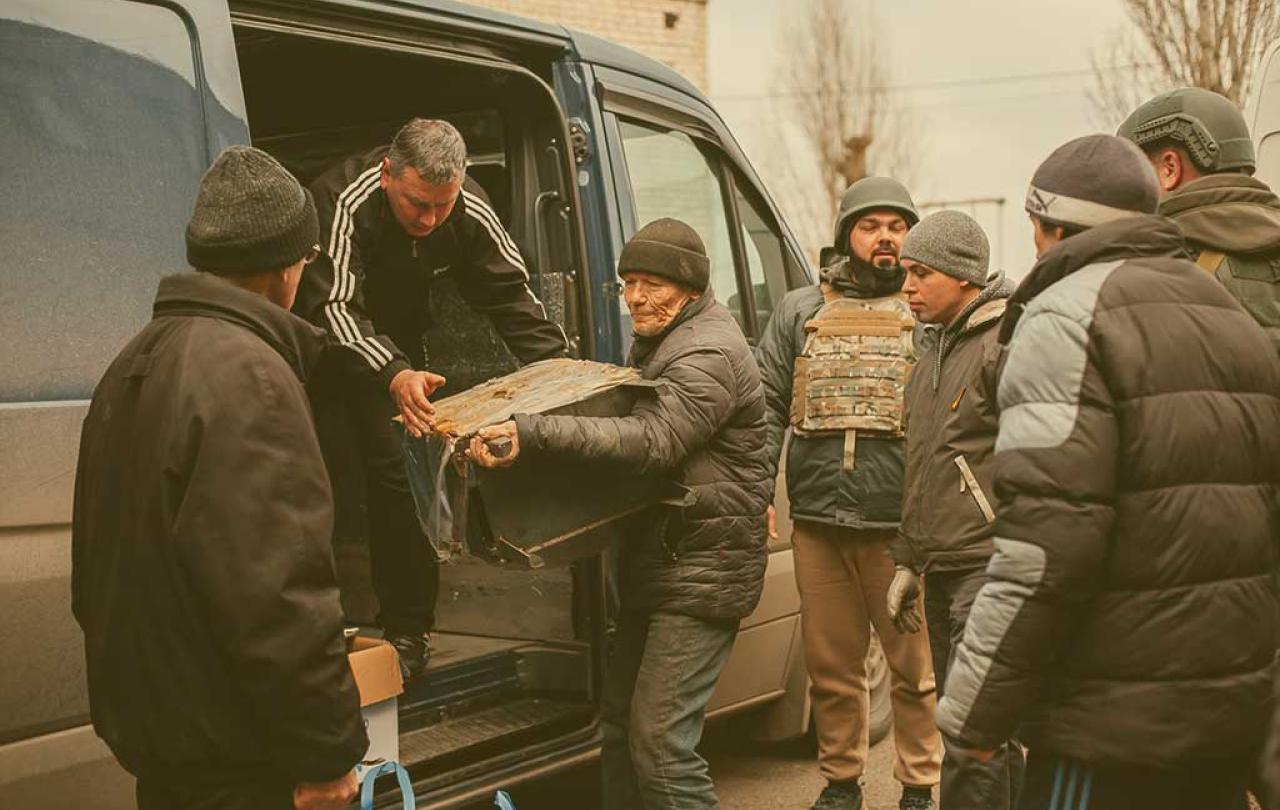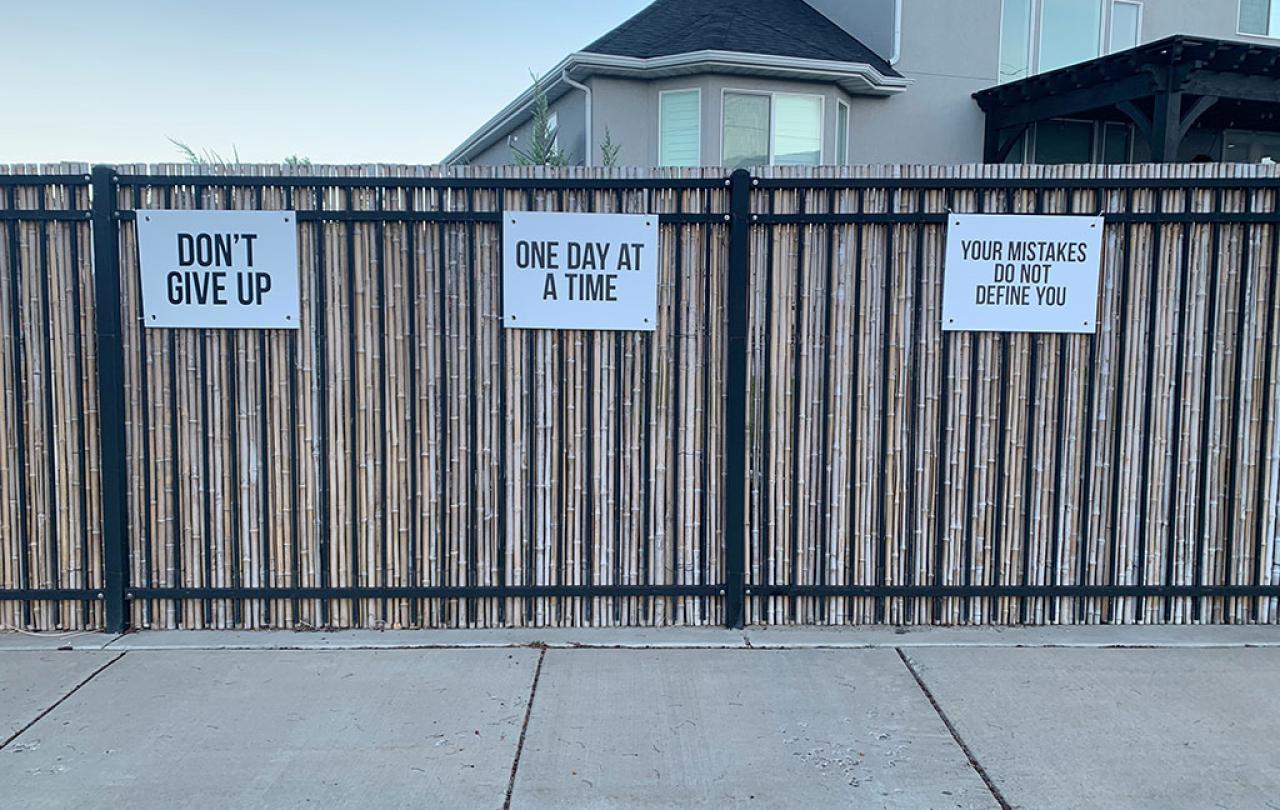There are two points I’d like to address before we get into the nitty gritty. Firstly, yes this is relevant to you. This isn’t an addict’s sob story where you get to voyeuristically bask in my pain before returning to your cushty life safe in the knowledge that you’ll never sink so low. Addiction is at the top end of a scale of idolatry that we all teeter on the brink of. If you think you can’t relate to my story, turn your phone off for three days and note how you feel every time you go to reach for it. We’re not so different you and I. We are all weak. We all live in a world tailored to give us short-sharp dopamine hits when our soul yearns for sustained, hard-earned rewards. We all have something we could afford to give up or moderate.
Second, New Year’s Day is not the best day to give something up. Neither is the first day of the month, or next Monday, or even tomorrow morning. The best time is right now. Before you’ve had one last ‘treat day’, one last party or one last flutter. The best time to make a change is the moment you realise you need to. That said, I do know plenty of people who gave up smoking for Stop-tober and never looked back and there are plenty of resolutions that have resulted in lasting change. Also - we are conveniently placed at the start of a new year, so let’s strike while the iron is hot.
If you have decided to give something up this year, here is how I, a recovering addict, believes you can arm yourself best for success.
Set clear goals
Leave the shades of grey to E. L. James. When it comes to making a positive change in your life this is a black and white business. ‘To be on my phone less’, ‘to read more’, ‘to drink less’… these are too vague to be achievable. Instead try: ‘to turn off my phone at 9pm and not turn it back on until 9am’, ‘to go to bed half an hour earlier and read 10 pages of a book’ or ‘to only drink on two days a week and have no more than three drinks.’
I once worked with a woman who set herself some simple goals around food: not to eat while she was cooking, not to eat in the supermarket, not to eat in her car and not to eat in her bedroom. This is far easier to attain than just a generic diet.
If you want to change your clear goals, you absolutely can… after a three-day cooling off period. If you want to up your drinking days to three per week, do it. But it will start next week, not this one when you’ve already drunk on Wednesday and Thursday and someone brings round some beers on Saturday night. You want to turn on your phone an hour earlier every morning, definitely do. But that will start in three-days-time, not on a low day when you’re fighting in bed and decide ‘what’s the harm?’
It's half about the lower screen time/alcohol consumption etc. and half about your ability to play by the rules, to exercise discipline and to make a decision today that will benefit you tomorrow. This is about looking after yourself as you would someone else who was your responsibility. You must enforce boundaries to help your charge develop well. Only this time, your charge is you.
Tell people
Social pressure is a helpful tool. Did you know those flyers that they drop through your door saying: ‘90% of your neighbours have completed their tax return by now’ are far more effective than the ones saying: ‘File your tax return’? How others perceive us matters to us.
Research shows that the more people you tell about your new resolution, the more likely you are to keep it. If you’ve announced to the Jones’ that you won’t be drinking and then pour yourself a cheeky snifter, you don’t just disappoint yourself but you run risk of a loss of respect from those you informed of your decision. Keeping up with the Jones’ can be a powerful motivator.
Expanding on that premise, and taking it from a threat to an encouragement, there’s also evidence that doing things in a group greatly increases everyone’s chances of success. If you’re reducing phone time, why not set up a WhatsApp group where you drop a message to your comrades just as you turn off your phone. That way everyone will have a record of the time each person logged off, you could then catch up in the morning and say how you used the time instead. If your plan is to exercise more, head to the same class every Tuesday morning with a friend and grab coffee afterwards. If you’re making pledges around food or alcohol patterns, why not agree them with your partner as you’re likely to share many meals together?
For the sake of your friendships though - make it clear to whoever you tell if you expect them to challenge you if you fall short or if you want them to leave you to it. Don’t expect a friend to police you without their prior agreement. Equally don’t expect them to stand by as you break your resolution without saying anything, unless you’ve made it clear you don’t want their intervention.
Observe yourself
There will be times when sticking to your resolution is easy (usually the firs two days of January). But unless you’ve gone for the kippers option, there will be times when it is incredibly hard. Observe yourself in those moments, ask yourself questions and understand what it is about those times that present a challenge.
Many people reach for their comforts when they’re happy, hungry, angry, lonely or tired. How do you respond when you feel these emotions? What brings you most comfort? Is there a healthier option that could support you instead?
You see, if you’re giving up something that has become an idol, that takes your attention and satisfies that dopamine craving when you most want it, you’ve left a vacuum. The void could mean you are more drawn to your crutch of choice than ever. Or it could mean that you select something equally unhelpful to get you through. Identify these crevices as they arise and come up with a plan to protect yourself in those moments.
I’ll kick you off with a few examples:
- You would usually pour yourself a glass of wine to mark the end of a working day? Get outside for a walk.
- You would usually fiddle on your phone on the commute? Bring a book with you.
- You get distracted during prayer/meditation time? Take a notepad with you, jot down any thought and then get back to your practice.
- Connect with friends over booze at the pub? Host a games night.
- Give yourself a little treat of chocolate or cake after a long day? Get a nice selection of teas and hot drinks.
Personalise the above as required.
Don’t beat yourself up
Lifestyle changes involve failure. Sadly, most things that are worth having involve accepting some level of failure. It doesn’t make you weak. It doesn’t make you evil. It doesn’t make you anything other than human. ‘The measure of a person isn’t how they fall, but how they pick themselves up.’ – said some over-quoted person like Gandhi, Theodore Roosevelt or Marylin Monroe probably.
Discipline is a muscle that needs work, and if this is your first time seriously embarking on something like this, you’re in the equivalent of the beginners’ Zumba category. Slipping up does not signal the end. It signals a slip. If I were cycling from London to Brighton and I fell off my bike around Horsham, I wouldn’t pick it up, walk it back to London and start again. I get to remount the bike exactly where I fell. I get the benefit and experience of the last 30 miles of road. It is an opportunity to strengthen my resolve and recommit myself, not to give up until next year.
Use the tools
There are an outrageous number of tools available to help you in your quest for progress. Don’t be too proud to use them. There are tracker apps, accountability programmes (like covenant eyes for those who want to cut out porn), books, podcasts, charities, anonymous meetings, medications, therapists, doctors, family, friends, churches and many others who can be with you. They can help while you mull on any challenges and strategize solutions that will help you grow.
Self-efficacy is key
There’s a study that I promise exists, even though in my in-between-Christmas-and-new-year haze I can’t find the reference for it. It was research on cannabis. Formerly cannabis was most commonly found as a secondary addiction for those whose primary focus was cocaine, heroin, Benzodiazepine or alcohol. But with the increased potency of street-level cannabis and the invention of synthetic-cannabinoids like Spice, more people are dying at the hands of marijuana, and therefore there are increasing budgets for research.
Unlike heroine, Benzos or alcohol, there is no medical intervention to support those coming off cannabis. So the study looked at the primary factors that supported long-term abstinence from the drug. The strongest predictor of successful recovery was self-efficacy i.e. participants who were most likely to get and stay clean were those who started the process by saying they believed they could.
You can make any positive lifestyle change you want but it takes time and perseverance. But if you make a declaration believing you probably won’t stick to it or that you’ll see how it goes – you’ve lost before you’ve started.
It won’t feel good
There’s an unspoken expectation that taking steps towards better, more nourishing clean-living feels good. Some people think that they will start waking up before their alarm, well-hydrated, with enough energy for a quick round of squash before a bracing ice bath and hearty breakfast. This is not my experience.
There are times when, in order to stick to my resolve, I had to just stay in bed. Not moving or facing the outside world. There were times when the agony of rejecting my crutches felt unbearable. Anything felt better than continuing on that difficult path of discipline. Achievement, to-do lists and even the notion of ‘a calling’ are reserved for those lucky enough to be functioning that day. The rest of us just have to survive.
The feeling of pain won’t last. It never does. For some it will be a few days of discomfort, followed by smug boasting that they ‘don’t even think about caffeine anymore’. While for others, the loss will sting and it will take time before they feel any benefit. But those benefits are coming. They are worth holding out for. In a world of 10-15 minute Deliveroo meals, let’s take an hour to cook ourselves a good dinner. In a world where every movie is a few remote clicks away, let’s read a book. In a world where you can plough on, getting things done, let’s boot one thing off our checklists and pause to pray instead. In a world of quick solutions, let’s take the long, restrained route. Let’s allow the process to run its course. Let’s become better, stronger people who are more equipped to carry life’s burdens and help others along the way too.






